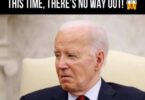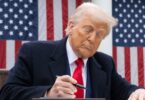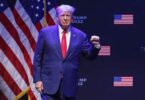Judge Boasberg Faces Scrutiny Over D.C. Lifestyle and Opposition to Trump Deportation Policy
Keywords: Judge James Boasberg news, Trump deportation policy, Alien Enemies Act, federal judge salary controversy, Elon Musk reaction, Pam Bondi immigration
U.S. District Judge James Boasberg is once again at the center of controversy after conservative critics highlighted his personal wealth and his judicial stance against the Trump Administration’s immigration enforcement policies.
The backlash began after Paul Sperry, a senior reporter at Real Clear Investigations, posted on X (formerly Twitter) that Boasberg owns a $2.4 million home in one of Washington D.C.’s wealthiest neighborhoods, despite earning a $247,000 federal salary. Tech billionaire Elon Musk responded to the viral post with a curt but suggestive “Interesting,” fueling widespread debate across social media platforms.
Boasberg’s Clash With the Trump Administration
The criticism follows Judge Boasberg’s recent ruling blocking the deportation of alleged gang members to Venezuela under the Alien Enemies Act, a legal authority invoked by the Trump Administration in March 2025. Boasberg condemned the move as an overreach, triggering a legal standoff with the Justice Department starting March 19.
White House Press Secretary Karoline Leavitt responded swiftly, calling Boasberg a “Democrat activist judge” appointed by former President Barack Obama, and accused him of showing “blatant bias” against President Trump’s immigration policies.
Defenders Respond to Wealth Accusations
Critics on the left defended Boasberg’s finances. Former Washington Post Live editor Lois Romano countered Sperry’s claims, explaining that Boasberg purchased the home decades ago for $500,000 when he worked in private practice and his wife, a Stanford MBA, held a lucrative consulting role. Romano dismissed the suggestion of impropriety, saying, “You’ve embarrassed yourself with your ignorance.”
Despite this, Attorney General Pam Bondi joined the criticism, accusing Boasberg of trying to “protect terrorists who invaded our country” and of interfering with the executive branch’s authority. “An unelected district court yet again invaded the policy-making and free speech prerogatives of the Executive Branch,” Bondi said in a statement.
Family Ties Draw Additional Fire
Further scrutiny came from an April 4 report in the New York Post, which spotlighted Judge Boasberg’s daughter, Katharine Boasberg. The paper alleged she works at Partners for Justice, a nonprofit accused of promoting lenient criminal justice policies and receiving millions in taxpayer funding. The editorial characterized the organization as “pro-crime” and hostile to immigration enforcement laws such as the Laken Riley Act.
Conclusion
The mounting criticism of Judge Boasberg underscores ongoing tensions between the judiciary and the Trump Administration over immigration, executive power, and public trust. As political figures and media outlets continue to debate Boasberg’s rulings and personal life, the case reflects the broader partisan divide over the role of judges in shaping national policy.






Leave a Comment